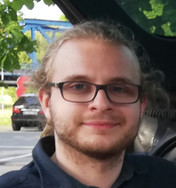Overview
In this seminar we will follow up on some rendering techniques related to rasterization and hardware-accelerated rendering. In CG1 we already touched the inner workings of today’s graphics APIs and hardware briefly. In this seminar students will further investigate specific parts of the rendering pipeline using a rasterization framework in order to implement respective rendering techniques.
Instructors
General Regulations
- Type: Seminar, Practical computer science
- ECTS: 7 points
- Language: English
- max. 6 participants
- Pre-requisites:
- Basic knowledge in CG1 and/or RIS
- Solid programming experience with C/C++
- Basic knowledge of graphics APIs (e.g. OpenGL, Vulkan, DirectX, etc.)
Registration
If you are interested in this seminar, please write an email to Stefan Lemme, M.Sc.. This mail should include your full name, semester, matriculation number, and any preferences with regard to your topic.
Modus operandi
- Each participant works solely on his own topic …
- … under individual supervision by an advisor of the CG chair
- In the mid-term short presentation each participant gives a talk about the related work, his own research statement, and a roadmap until end-of-term
- The end-term presentation showcases the implementation as a live demo embedded into a talk about the whole topic and the carried out research.
- The work that was carried-out during the term is documented in the fashion of a short paper and submitted for a scientific peer-review process.
- Each participant reads at least two assigned papers of other participants for a review
Topics
Please find here a non-exhaustive list of topics that we may cover in this seminar. The concrete topic for each participant will be defined together with the associated advisor.
- Material Description
(procedural materials, Open Shading Language, …) - Deferred Rendering
(G-Buffers, deferred shading, deferred lighting, massive lighting, HDR, …) - Geometry Processing
(splines, surface subdivision, vector graphics, …) - Shading
(shadow mapping, …) - Anti-aliasing
(temporal/spatial methods, super sampling, DLSS, …) - Post-Processing effects
(ambient occlusion, depth of field, bokeh, glow and bloom, …) - …
Schedule
First meeting: 13 April 2021, 2pm c.t., Digital conference call (tba)
| Date | Event |
|---|---|
| 13 April 2021 | Kickoff and topic assignment |
| April - May | Individual meetings with advisors |
| 18 May 2021 | Mid-term short presentations |
| May - July | Individual meetings with advisors |
| 13 July 2021 | End-term presentations |
| 20 July 2021 | Deadline implementation |
| 10 August 2021 | Deadline paper |
| 24 August 2021 | Deadline peer-reviews |
Grading
- presentations (mid-term and end-term)
- short paper
- implementation
Possible Follow-Ups
Bachelor and Master’s Thesis







